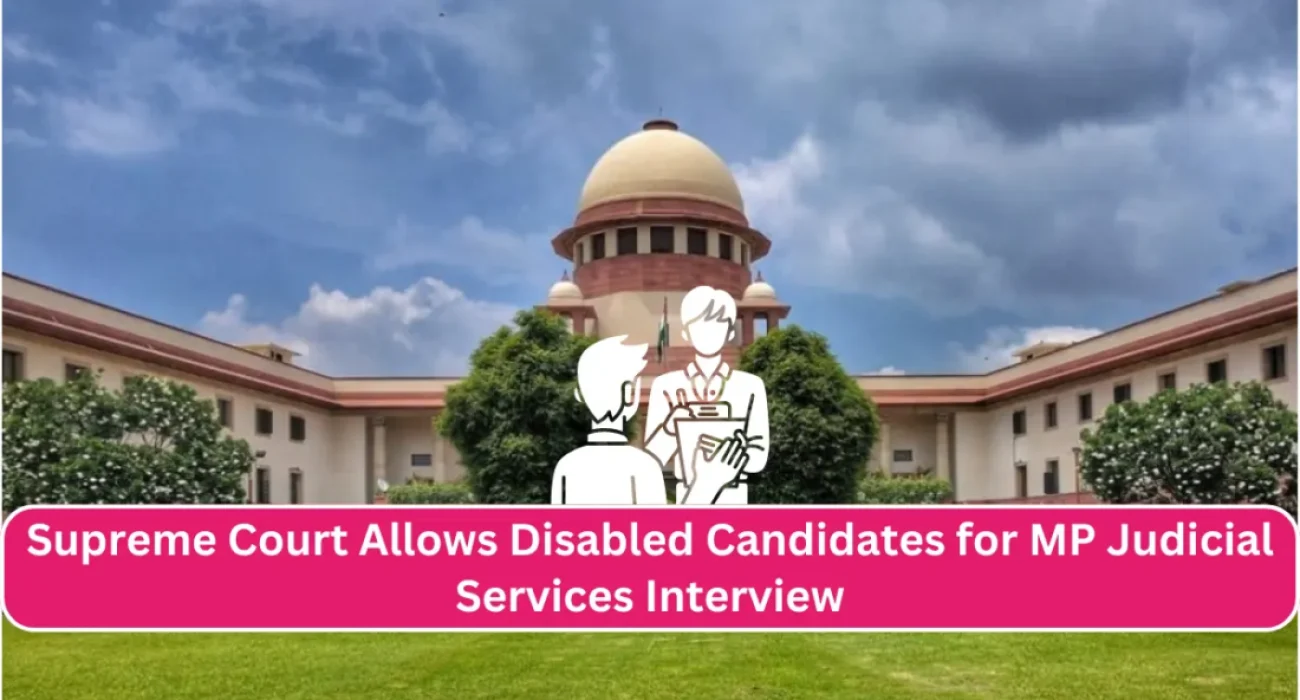

Table of Contents
ToggleThe Supreme Court resumed its hearing on May 21 on a suo motu case involving a Madhya Pradesh rule that prohibits candidates who are blind or visually impaired from applying for positions in the judiciary.
The case commenced when the mother of a candidate who is visually impaired wrote to Chief Justice of India (CJI) DY Chandrachud regarding the exclusion. The letter was turned into a petition by the Court under Article 32 of the Constitution, and notices were sent to the Union of India, the State of Madhya Pradesh, and the Secretary General of the Madhya Pradesh High Court.
Previously, the Court found that the Civil Judge Class-II exam in 2022 violated the 2016 Rights of Persons with Disabilities Act by not providing reserved seats for participants who are visually impaired. Measures in the interim were implemented, and the primary test, which was set for March 30 and 31, 2024, went forward as planned.
As Amicus Curiae, Senior Advocate Gaurav Agarwal apprised the Bench that, in spite of the Court’s directive, none of the thirty-one disabled applicants who took the main exam had received the necessary scores to be eligible for an interview. He emphasized that there isn’t a distinct cutoff for people with disabilities.
Judge Narasimha proposed that distinct reservations for candidates with disabilities be taken into consideration, akin to the current quotas for women and athletes. “There can always be some quota for women,” he said. There may be quotas in sports. What about this category is flawed?
The Court stressed that in order to create precise legal guidelines, this matter needs to be thoroughly investigated. Justice Narasimha also expressed concerns about the frequent litigation surrounding selection processes in the judicial system, noting, “Every selection process in our country gets into litigation. Our judicial services are suffering. There is not a single High Court that has successfully conducted a selection process without litigation. Even before you commence it, litigation starts.”
The Supreme Court referenced its 2021 judgment in the case of Vikash Kumar vs. Union Public Service Commission, authored by Justice Chandrachud, which overruled a precedent that excluded candidates with more than 50% visual or hearing disability from judicial service. This precedent underscores the Court’s commitment to inclusivity and fairness in judicial appointments.
The Court mandated that any of the 31 disabled candidates who met the minimum score needed to be considered as reserved candidates (SC/ST) be contacted for an interview as a temporary measure. This directive is contingent upon the resolution of the legal matter.
-By Anaida Khan Pursuing 4th year of BALLB (Hons.) from Dharmashashtra National Law University, Jabalpur.
IAW resources
Browse our help directory